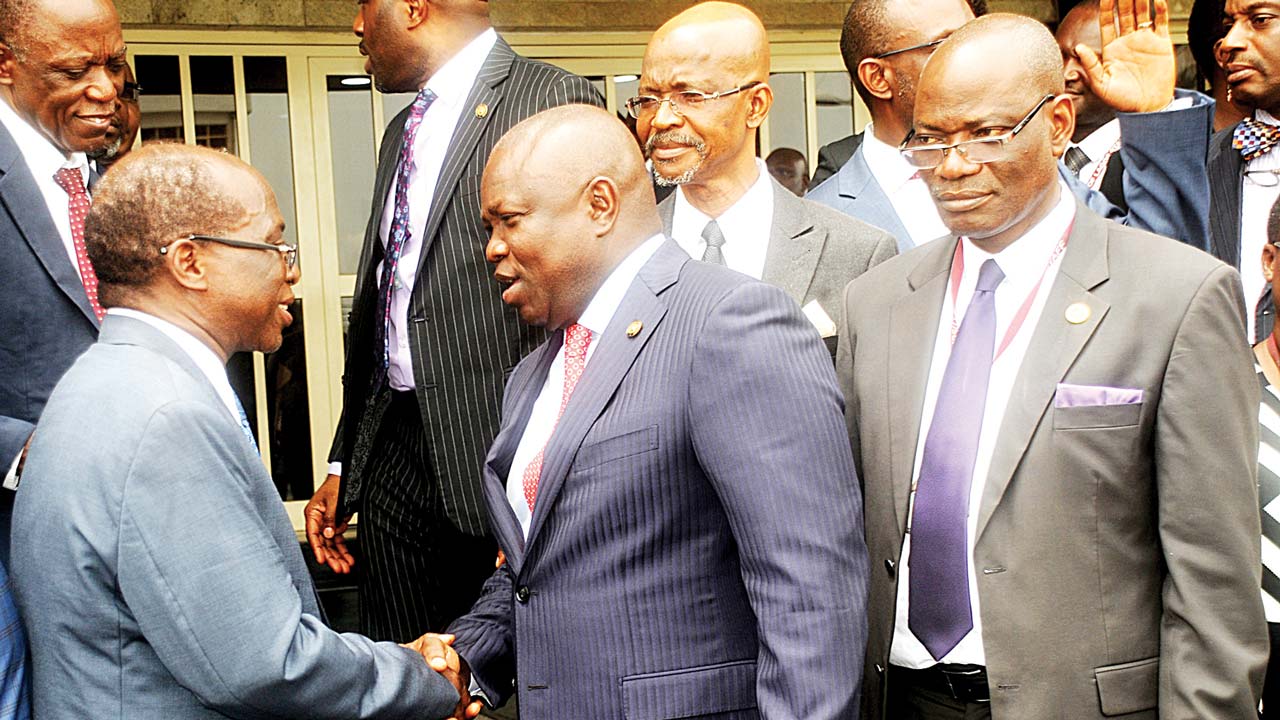
The Lagos State Governor, Akinwumi Ambode yesterday called for urgent collaboration with the academic community on research development for sustainable growth of the state, noting that research by the scholars would aid government’s vision for growth and development.
Ambode spoke at Lagos House in Ikeja while receiving management of the University of Lagos (UNILAG) who were on a courtesy visit led by its Vice Chancellor, Professor Rahamon Bello.
“The time has come for practical collaboration between government and the academia. We need to now see how the academic community can help in our vision for growth and development. There are so many things that should actually come from the academic community that allows government to create the platform for good governance and reduce the cost of governance. And this will only come from the research works that come out from the university,” Ambode said.
The governor, who is himself a product of UNILAG, described the visit by the management of the institution as historic and harped on the need to build on it to ensure purposeful synergy for growth and development.
He recalled a professorial research work in UNILAG funded by the state government on tax matters, saying that more required to be done in finding solution to the myriad of challenges confronting the nation.
“We are excited about the fact that we are the fifth largest economy in Africa with $136 billion GDP but the truth is our vision is to make Lagos the third largest economy in Africa in the next five years,” Ambode added.
Speaking, Bello said the visit was to associate with Ambode who is the first alumnus of UNILAG to govern the state and to scale up partnership with the state government on development.
In a related development, the Lagos State government yesterday revealed that it spent N291 billion on infrastructure development in 2016. Commissioner for Economic Planning and Budget, Akinyemi Ashade disclosed this at the ministerial press briefing in Lagos.
Ashade said the budget performance for last year closed at 80%, with a total Revenue of N436.328 billion while total Internally Generated Revenue (IGR) amounted to N312.830 billion and a Capital Expenditure ratio of 55:45 percent.
Meanwhile, the governor of Taraba State, Darius Dickson Ishaku has insisted that for the economy of the state and the country to improve, Public Private Partnership (PPP) must be adopted. He said the state government in its belief that government has no business in business, mapped out relevant strategies to motivate and attract investors to the state through PPP.
Citing the Green House Project which now produces vegetables such as cucumbers, sweet and hot peppers, tomatoes and lettuce, among others, the state was considering entering into partnership with private companies to sustain the project.
Ishaku made this known yesterday while inspecting the multi-millionaire project sited between the state university and the College of Agriculture in Ardo-Kola local government council of the state.
He expressed the hope that the revenue base of the state would soon experience an increase following the ongoing activities at the Green House project.
The Project Manager, Gil Navon said the Green House has the capacity to supply the vegetable needs of the entire country, stressing that the management has trained the people of the state on how to handle the project.



